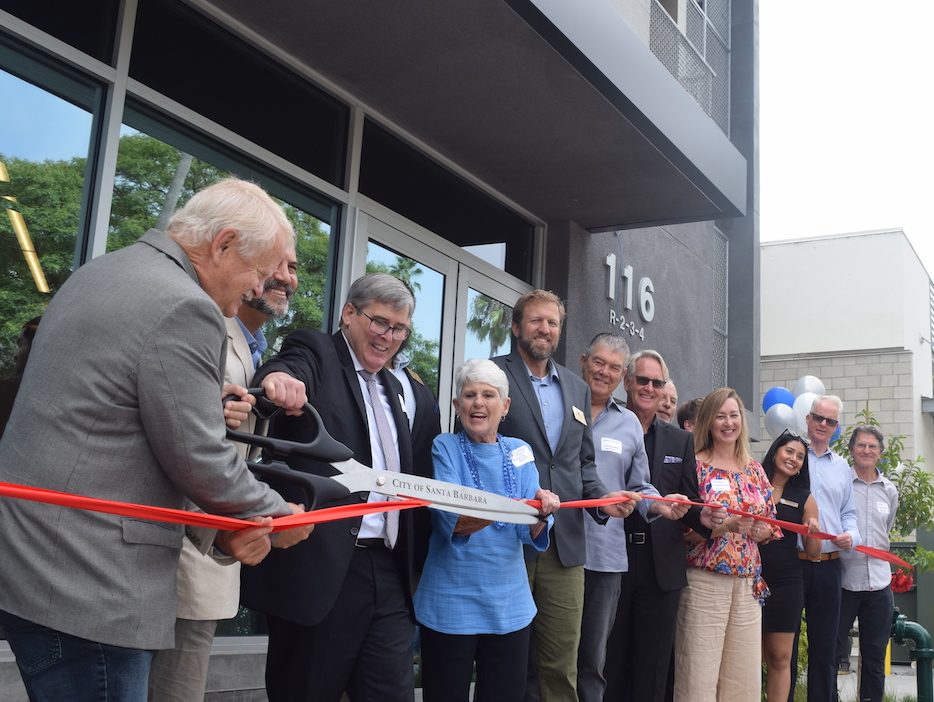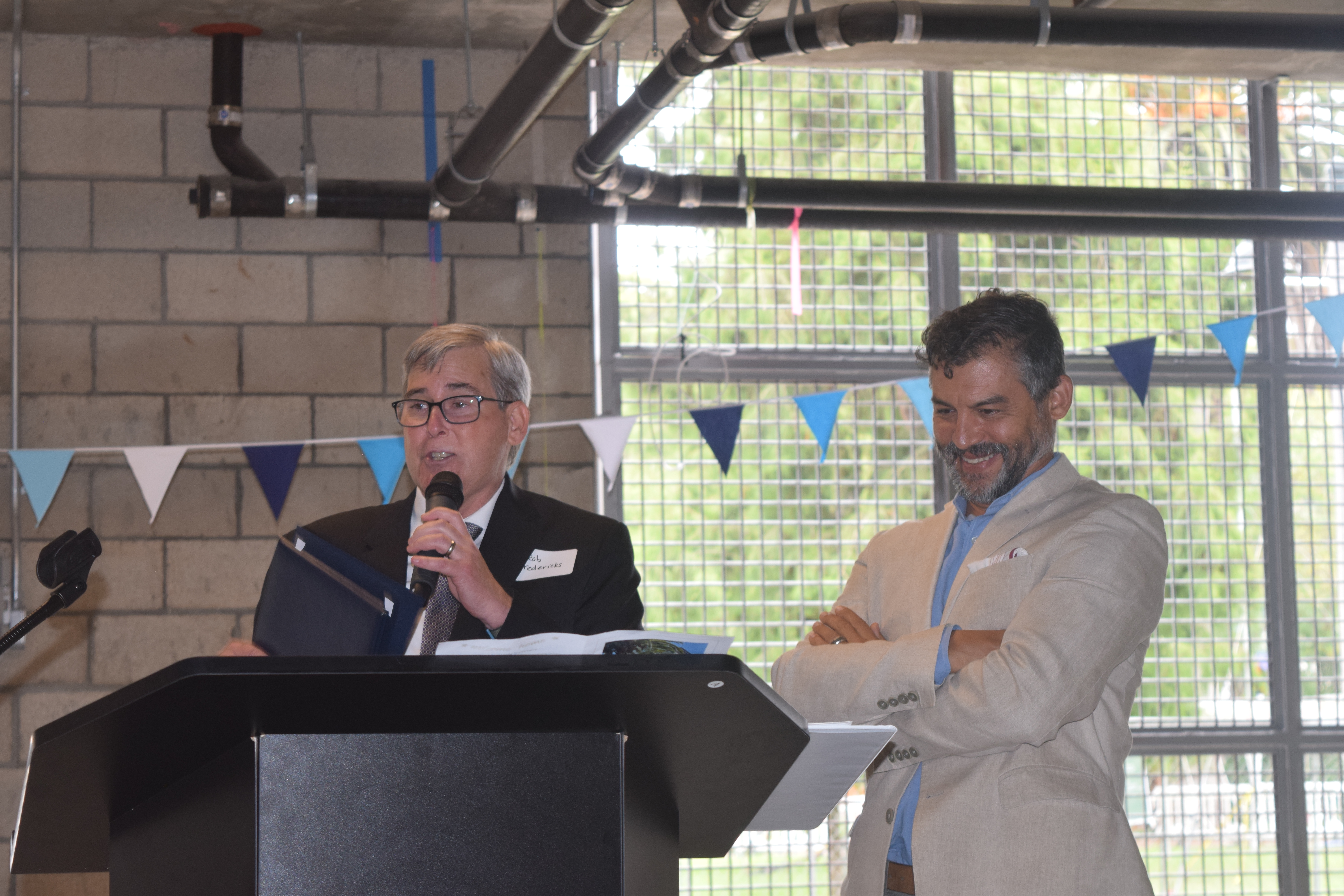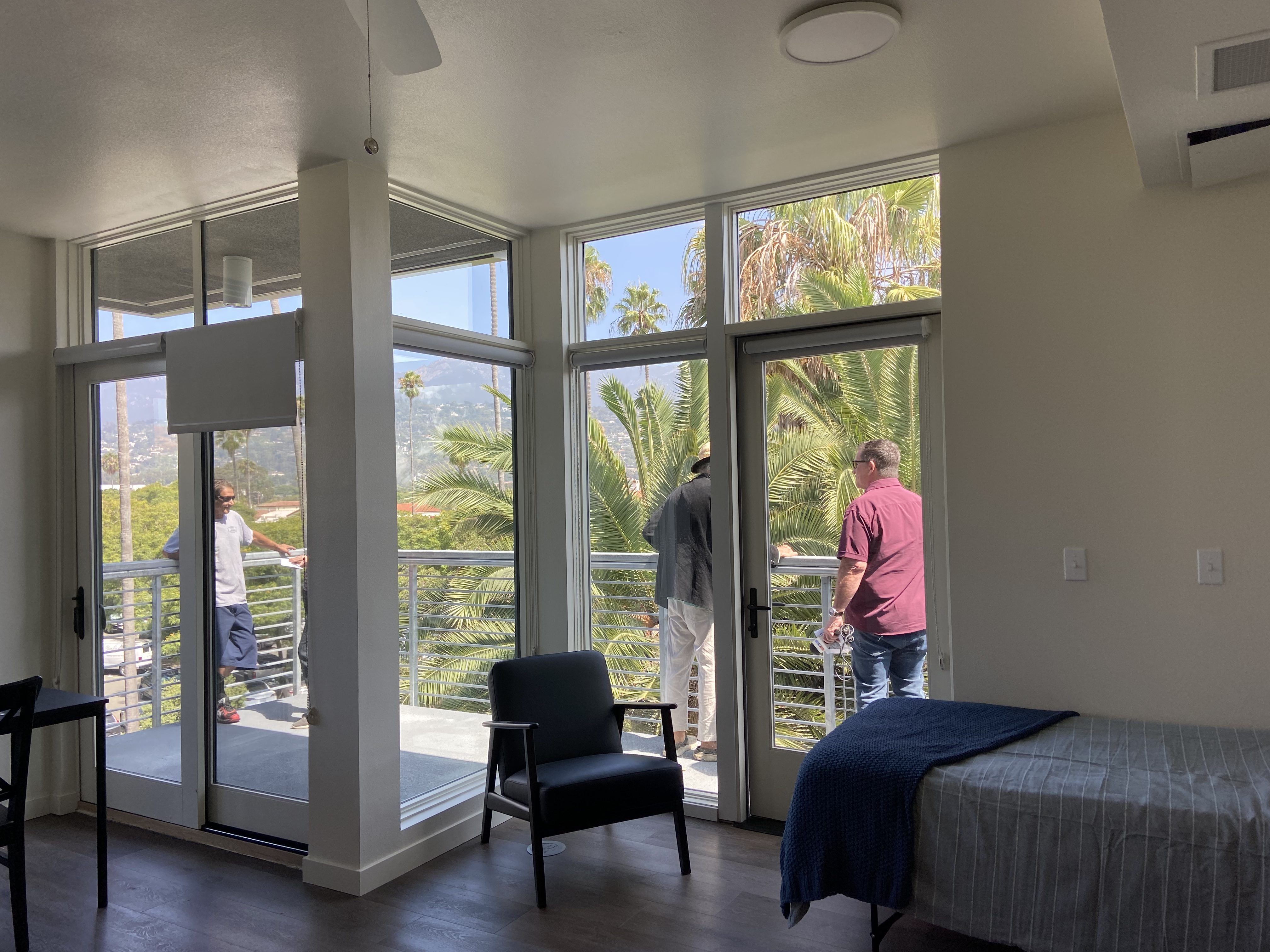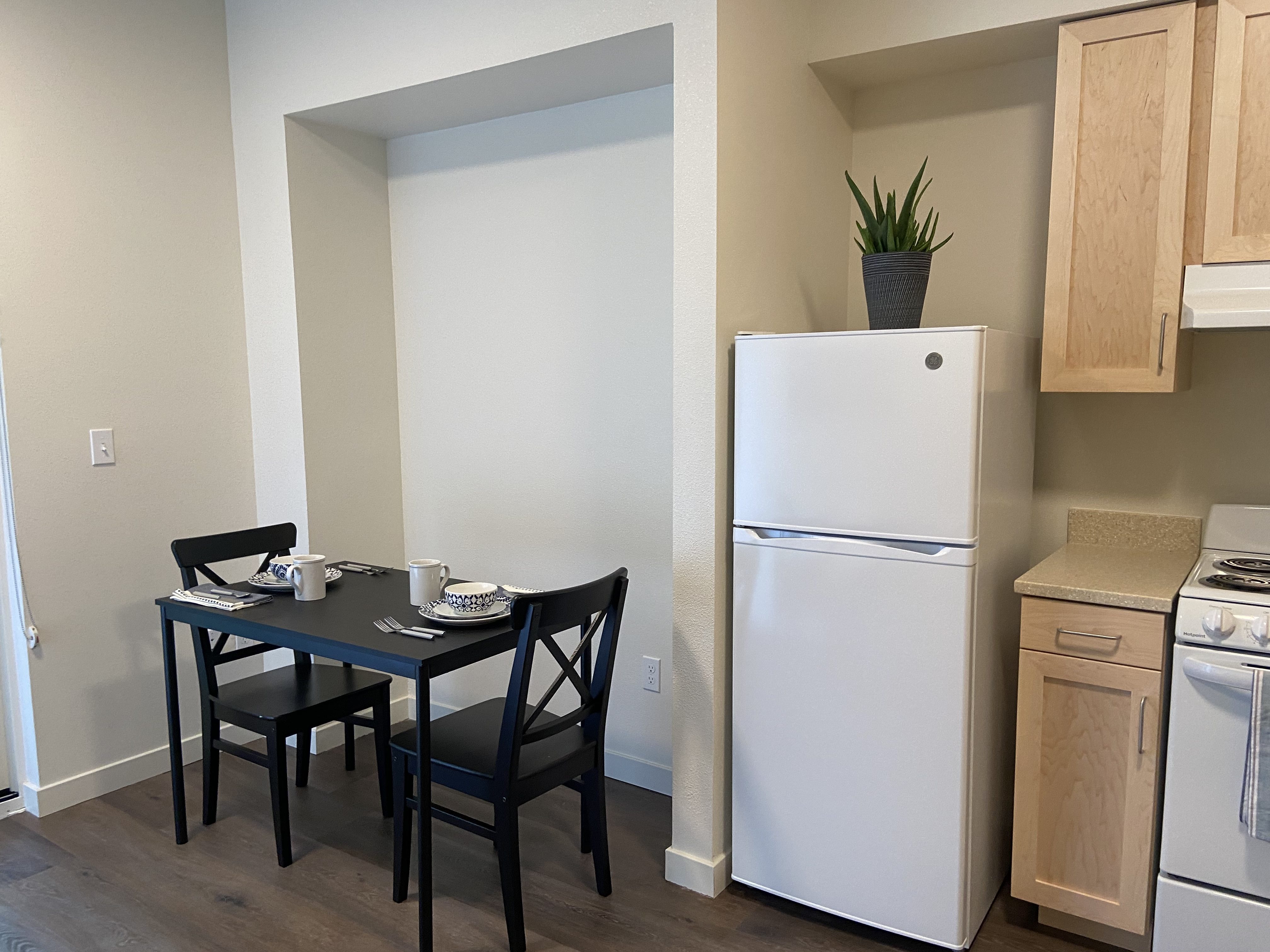
Housing Authority of the City of Santa Barbara Unveils 28-Unit Vera Cruz Village
New Development Provides Permanent Housing for Low-Income, Disabled, and Formerly Homeless Residents

Fri Sep 01, 2023 | 2:10pm
Twenty-eight individuals in desperate need of permanent housing now have a place to call home in downtown Santa Barbara.
On Thursday, August 31, the Housing Authority of the City of Santa Barbara hosted a grand opening of the Vera Cruz Village, a 28-unit affordable housing project located on Cota Street geared toward placing tenants who were previously experiencing homelessness. On Friday, all the new tenants moved in.
During the ribbon-cutting ceremony, city Housing Authority Executive Director Rob Fredericks thanked the long list of government officials, housing advocates, and community organizations that made the affordable housing development possible.
“We can’t do these developments on our own,” Fredericks said.
It was truly a team effort from the beginning, he explained. The property was originally slated as a 15-unit market-rate housing project, which was actually fully approved before the deal fell through and the city Housing Authority jumped on the opportunity to buy the property in 2020.
The city itself pitched in more than $3.5 million on the project, investing $2 million during its inception and footing another $1.5 million to help get it across the finish line when construction costs and shipping delays were piling up. In total, with construction costs and development fees, the Housing Authority and all financial supporters were able to leverage that couple of million into more than $20 million toward the project.

It also took the help of Enterprise Community partners, who purchased tax credits from the Housing Authority to help provide the capital to complete the project; the management from 2nd Story Associates and Garden Court, who will act as “owners” of the property; and the Women’s Fund of Santa Barbara, which helped work with 2nd Story Associates to provide all the furnishings and soft goods to make all the units ready for the tenants.
That final push to get the units ready for move-in took even more extra work. The elevator was not quite ready in the week before the grand opening, so a dream team of volunteers lugged every piece of furniture up the stairs (units are on the second, third, and fourth floors) to make every studio “a place to call home,” Fredericks said.
He gave a special shout-out to the state elevator inspector, who had arrived just before the grand opening to give the building the final seal of approval. That inspection also took the power of collaboration: The inspection was scheduled for September 12, but when the Housing Authority was flooded with tenant applications and the units were ready to go, State Senator Monique Limón’s office made some calls, pulled some strings, and “magically, the schedule moved up,” Fredericks joked.
The modern architecture of the project is a departure from the usual white walls and red tiles of downtown Santa Barbara, but it fits the neighborhood in which it sits, right between Dune Coffee on Anacapa and Vera Cruz Park.
Construction on the project was handled by McGillivray Construction, a Ventura-based company that Fredericks said was “fantastic” and on-budget. “I wish I could use them on every development,” Fredericks said. “They understand multi-family housing.”


Half of the tenants were placed through DignityMoves’ tiny homes and will be going from transitional housing to permanent units at Vera Cruz. Other tenants are all low-income or disabled or have previously experienced homelessness. Tenants will pay 30 percent of their rent with the rest covered through housing vouchers and Section 8 support.
New Beginnings Counseling Center, which runs support services at the Housing Authority’s veteran housing development, Johnson Court, will run similar support services for all the tenants at Vera Cruz Village.
Government officials from all over the region were in attendance at the grand opening, including Mayor Randy Rowse; city councilmembers Eric Friedman, Kristen Sneddon, and Oscar Gutierrez; and 1st District Supervisor Das Williams.
Williams noted that the collaboration with the city Housing Authority is just another example of the regional governments “pushing in the same direction” to tackle housing insecurity. Similar projects are already in the works in the county, Williams said, such as a Super 8 motel in Goleta that will soon be converted to Section 8 housing, and an Isla Vista sorority house that will become transitional housing.
“Bad news is that it’s not enough,” Williams said. Despite the hundreds of individuals who have been placed in transitional housing units over the past two years, there is still a severe shortage of permanent and stable housing for the same individuals, who Williams said are “clean, sober, and ready to house with nowhere to go.”
He said he hopes this is a sign of what’s to come, and with cities like Santa Barbara’s demographics changing as rental prices skyrocket — “the Latino population is shrinking,” he said — it’s more important than ever to “embrace a dedicated revenue source” to continue funding truly affordable housing.
“We can house our community,” he said.
